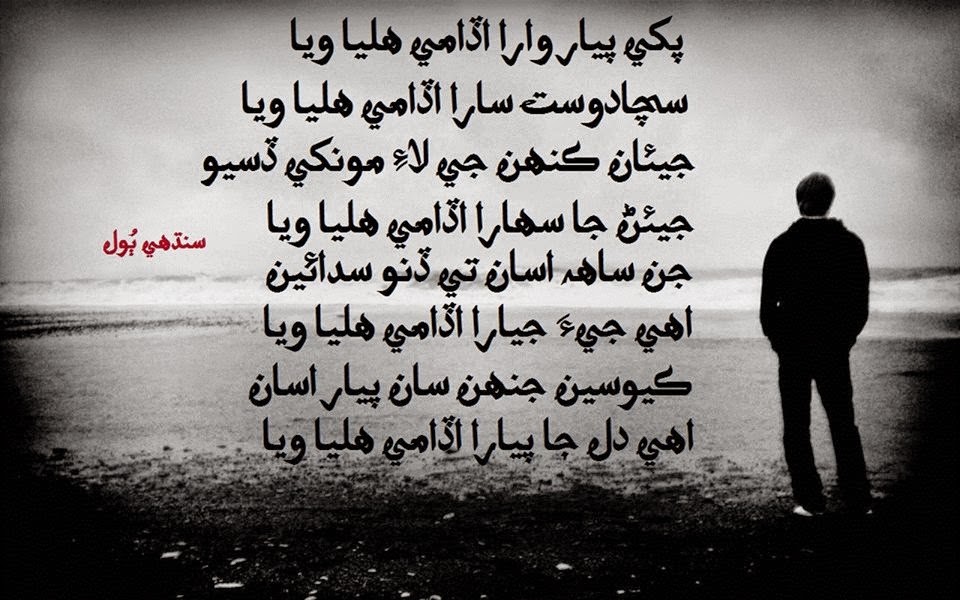
The multi-cultural people gave rise to new thoughts and trends,” she explained. “A part of Sindh has been affected by colonialism. Invasion by different powers gave rise to multiculturalism in Sindh, leading to diversity, which helped produce some great works of literature. However, she also believes that it is because of the colonial invasion of Sindh that the poetry and music became so diverse. Sindhi poet and writer Soz Halai passes away “Sindhi poetry and music are entering the modern world without losing their connection to the past or to the rich traditions and culture of the province.” This, according to Gul, is the reason a connection can be seen between classical and modern poetry of the Sindhi language. According to Saif, even Bhitai’s poetry was resistant in nature. This is not a modern idea - the theme has been present in Sindhi poetry for years. Poetry and music have been used extensively by Sindhi poets to challenge tyranny, power, oppression and suppression. This fight for the land took the form of poetry and music, giving rise to the poetry of resistance in Sindh. “The struggle to preserve the identity, language and, hence, land has always been there in Sindhi literature,” poet and short-story writer Shabnam Gul said. It reflects the struggle to preserve language and culture. The poetry and literature of the province reflect this conflict.

Sindh has a history of colonialism, which gave rise to a sense of alienation amongst its people. But what gave rise to this narrative in Sindhi poetry? What is it in the land of Sindh that it makes it inseparable from the literary world?Īccording to Indus Cultural Forum Chairperson Niaz Nadeem, “The recurrent events of invasion by colonial powers and an attempt by the people of Sindh to secure their land gave impetus to this narrative.” “My love for the land of Sindh inspired me to compose music,” Saif explained. “Sindhi poetry is incomplete without a mention of love for the land,” said Dr M Ishaq Samejo, director of the Institute of Sindhlogy at the University of Sindh, while speaking at the Lahooti Melo organised in Hyderabad recently.įrom poets like Shah Abdul Latif Bhitai and Sachal Sarmast to present day musicians like Saif and many others, this love for the land has always been prevalent. Therefore, they call it their motherland,” said Saif Samejo, founder and lead vocalist of The Sketches. “The people of Sindh see the land as their mother - a mother who feeds them with her rich agricultural resources, a mother who gives them water through the Indus River.

Most poets describe their poetry as an expression of love for God or beloved, however, for Sindhi poets love of land comes first.


 0 kommentar(er)
0 kommentar(er)
